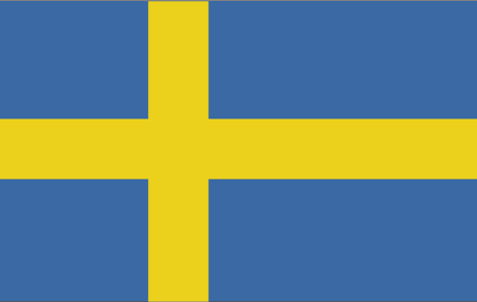
Meeting and Greeting
Business Personnel in Sweden are typically fairly reserved and as such it is important that all dealings are formal and serious until it is deemed acceptable by the respective Swedish personnel to allow events to become more relaxed.
Key suggestions are as follows:
. Ensure that, maintaining eye contact coupled with a firm handshake, you shake hands with all attendees on both arrival and departure.
. Ensure that you address your hosts with either their professional title or their honorific title and their surname - Mr. - Herr or Mrs. – Fru.
. Younger people are likely to move more quickly to a first name basis than older people.
. Personal space is important in Sweden and as such it is recommended that you maintain an awareness of someone’s personal space and that you do not invade it. Avoid any unnecessary touching.
Gift Giving Etiquette
. If you are invited to a Swede’s home then it is suggested that you take the same type of gift as you would give in the UK e.g. a bouquet of flowers or, a box of chocolates.
. If you choose to give flowers, then ensure that the bouquet does not include white lilies or chrysanthemums. The reason for this being that both types of flowers are typically given at funerals.
. Since Sweden is such a child centred country, it is always recommended that you take gives for any children who may be part of the family who you are visiting.
. If you are personally given a gift, then it is custom to open it upon receipt.
Business Cards
There are no particular protocols for the exchanging of business cards in Sweden.
What to Wear?
Business wear in Sweden is conservative. As such, we advise the following:
. Men should wear good quality suits with silk ties and shirts.
. Women should wear conservative business dresses or a suit.
. Due to the egalitarian values of Sweden, it is strongly recommended that you do not wear anything flashy. Even senior directors or executives do not dress any more elaborately than average employees. As such, avoid ostentatious or, obvious jewellery.
Business Meetings
. Ensure that you give at least two weeks notice if you are arranging a meeting in Sweden.
. Months to avoid if possible, include June, July, August and then late February through to early March as most Swedes will be on holiday during these periods. As with the UK, most Swedes are also absent during the Christmas period.
. Punctuality is absolutely essential. If you are late, then this will reflect very badly on you and will be viewed as discourteous.
. Swedes rarely engage in small talk at the start of a meeting. Instead, people will move directly to the topics at hand.
. Meetings are typically governed by an agenda which is distributed to individuals prior to the meeting. There is very little talk outside of the agenda topics.
. Although most meetings are managed by a particular person, all individuals are expected to contribute.
. Swedish business personnel are extremely detail focused and as such any presentations should be well prepared with supporting, accurate and relevant data. Be assured that your hosts will pay a great deal of attention to the detail.
. Swedes rarely make decisions during initial meetings and as such, the first meeting that you have with your hosts is likely to be fairly general and low key.
. Swedes are direct communicators and as such, "Saying what you mean and meaning what you say" is both practiced and expected.
. ‘Awkward silences’ are rarely seen as awkward in Sweden and as such, Swedes do not rush to fill conversation silences.
. If you are trying to sell something then try to tone down the use of emphasis or superlatives as it is very rare that a Swede will over elaborate during a conversation – even if they are trying to sell something. Failure to adhere to this could result in your delivery being viewed as insincere.
Negotiating
. It is essential that you are cool and controlled during negotiations and that you do not demonstrate any emotion as this will be perceived negatively.
. Additionally, always bear in mind that the egalitarian nature of Sweden means that decisions and consensus are made across teams. As such endearing yourself to the most senior executives and directors will be of no avail.